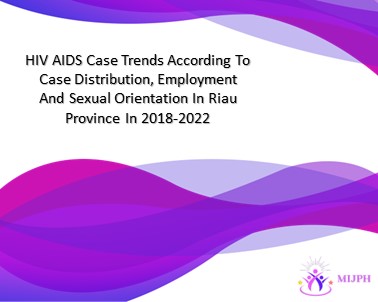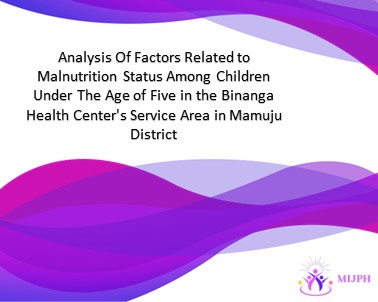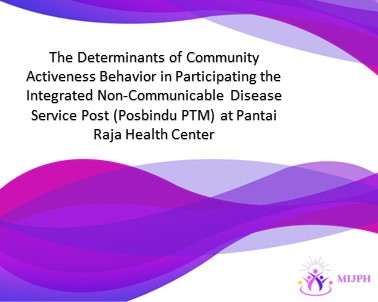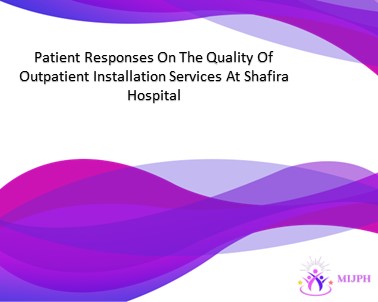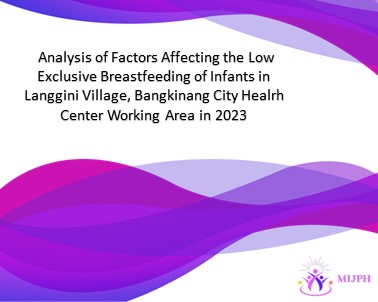Editorial Team Author Guidelines Peer Review Reviewers Focus and Scope Publication Ethics Copyright Notice Author(s) Fee Plagiarism Policy Statistics
Editorial Policy
Editorial Policies
- Focus and Scope
- Section Policies
- Peer Review Process
- Open Access Policy
- Archiving
- Plagiarism Screening
- Article Processing Charge
- Publication Ethics
Focus and Scope
The Indonesian Journal of Public Health is scientific journal provides article of research and literature review related to development of public health science, which includes:
- Epidemiology and Biostatistic,
- Promotion of Health and Behavior,
- Mother and Child's Health and Reproduction Health,
- Populations Studies,
- Public Health Nutrition,
- Enviromental Health and Occupational and Safety Health.
Section Policies
Asia-Pacific Academic Consortium for Public Health
Articles
Bulan Epidemiologi
Peer Review Process
In the reviewing process, there are at least two reviewers for each manuscript for the related topic. Judgement from the first reviewer will be the main priority on which the editor will make their decision, if there are only two reviewers. Two weeks will be needed for a reviewer to complete one round of the reviewing process. The revision from the author shall include former comments from the reviewer and the author shall notice that the manuscript has been revised.
Generally, the candidate of the reviewers will be chosen based on their reputation in the international publication number and the study quality. For the next step, the editor sends an invitation letter to each candidate of the reviewer. After the candidate of the reviewer has been informed of their availability for the reviewing process, the editor can create an account for each reviewer and then send manuscript by OJS.
All of the reviewing process is done by way of a double-blind review and is managed by the editor in OJS.
Articles are considered for publication with the condition that they have not been published or submitted for publication elsewhere.

This journal provides immediate open access to its content on the principle that making research freely available to the public supports a greater global exchange of knowledge.
This journal utilizes the CLOCKSS systems to create a distributed archiving system among participating libraries and permits those libraries to create permanent archives of the journal for purposes of preservation and restoration.
Plagiarism screening will be conducted by The Indonesian Journal Of Public Health (IJPH) Editorial Board twice before and after review by using TURNITIN Plagiarism Checker. Articles that escapes when the obtained similarity is less than 15%.
Starting January ,2022
---------------------------------------------------------------
Every article which will be published in The Indonesian Journal of Public Health (IJPH) will be charged
Article Processing Charge: IDR 1,000,000
-------------------------------------------------------------------
Authors can transfer the fee through this following bank account:
Bank BNI No.Virtual Account
Name: Pembayaran Article Publications Charge (APC) Jurnal
Miracle International Publich Health (pISSN 1829-7005) is a peer-reviewed electronic journal. This statement clarifies the ethical behaviour of all parties involved in the act of publishing an article in this journal, including the author, the chief editor, the Editorial Board, the peer-reviewer and the publisher (Faculty of Public Health, Universitas Airlangga). This statement is based on COPE’s Best Practice Guidelines for Journal Editors.
ETHICAL GUIDELINE FOR JOURNAL PUBLICATION
The publication of an article in a peer-reviewed The Indonesian Journal of Public Health is an essential building block in the development of a coherent and respected network of knowledge. It is a direct reflection of the quality of the work of the authors and the institutions that support them. Peer-reviewed articles support and embody the scientific method. It is, therefore important to agree upon standards of expected ethical behavior for all parties involved in the act of publishing: the author, the journal editor, the peer reviewer, the publisher and the society.
Universitas Airlangga as publisher of The Indonesian Journal of Public Health takes its duties of guardianship over all stages of publishing extremely seriously and we recognize our ethical and other responsibilities. We are committed to ensuring that advertising, reprint or other commercial revenue
has no impact or influence on editorial decisions. In addition, the Faculty of Public Health Universitas Airlangga and Editorial Board will assist in
communications with other journals and/or publishers where this is useful and
necessary.
PUBLICATION DECISIONS
The editor of The Indonesian Journal of Public Health is responsible for deciding which of the articles submitted to the journal should be published. The validation of the work in question and its importance to researchers and readers must always drive such decisions. The editors may be guided by the policies of the journal's editorial board and constrained by such legal requirements as shall then be in force regarding libel, copyright infringement and plagiarism. The editors may confer with other editors or reviewers in making this decision.
Fair Play
An editor at any time evaluate manuscripts for their intellectual content without regard to race, gender, sexual orientation, religious belief, ethnic origin, citizenship, or political philosophy of the authors.
Confidentiality
The editor and any editorial staff must not disclose any information about a submitted manuscript to anyone other than the corresponding author, reviewers, potential reviewers, other editorial advisers, and the publisher, as appropriate.
Disclosure And Conflicts Of Interest
Unpublished materials disclosed in a submitted manuscript must not be used in an editor's own research without the express written consent of the author.
DUTIES OF REVIEWERS
Contribution to Editorial Decisions
Peer review helps editors make editorial decisions, and it may also help authors improve their work through editorial contacts with them. Peer review is the foundation of the scientific method and a crucial part of formal scholarly communication.
Promptness
Any selected referee who feels unqualified to review the research reported in a manuscript or knows that its prompt review will be impossible should notify the editor and excuse himself from the review process.
Confidentiality
Any manuscripts received for review must be treated as confidential documents. They must not be shown to or discussed with others except as authorized by the editor.
Standards of Objectivity
Reviews should be conducted objectively. Personal criticism of the author is inappropriate. Referees should express their views clearly with supporting arguments.
Acknowledgement of Sources
Reviewers should identify relevant published work that has not been cited by the authors. Any statement that an observation, derivation, or argument had been previously reported should be accompanied by the relevant citation. A reviewer should also call to the editor's attention any substantial similarity or overlap between the manuscript under consideration and any other published paper of which they have personal knowledge.
Disclosure and Conflict of Interest
Privileged information or ideas obtained through peer review must be kept confidential and not used for personal advantage. Reviewers should not consider manuscripts in which they have conflicts of interest resulting from competitive, collaborative, or other relationships or connections with any of the authors, companies, or institutions connected to the papers.
DUTIES OF AUTHORS
Reporting standards
Authors of reports of original research should present an accurate account of the work performed as well as an objective discussion of its significance. Underlying data should be represented accurately in the paper. A paper should contain sufficient detail and references to permit others to replicate the work. Fraudulent or knowingly inaccurate statements constitute unethical behaviour and are unacceptable.
Data Access and Retention
Authors are asked to provide the raw data in connection with a paper for editorial review, and should be prepared to provide public access to such data (consistent with the ALPSP-STM Statement on Data and Databases), if practicable, and should in any event be prepared to retain such data for a reasonable time after publication.
Originality and Plagiarism
The authors should ensure that they have written entirely original works, and if the authors have used the work and/or words of others that this has been appropriately cited or quoted.
Multiple, Redundant or Concurrent Publication
An author should not in general publish manuscripts describing essentially the same research in more than one journal or primary publication. Submitting the same manuscript to more than one journal concurrently constitutes unethical publishing behaviour and is unacceptable.
Acknowledgement of Sources
Proper acknowledgment of the work of others must always be given. Authors should cite publications that have been influential in determining the nature of the reported work.
Authorship of the Paper
Authorship should be limited to those who have made a significant contribution to the conception, design, execution, or interpretation of the reported study. All those who have made significant contributions should be listed as co-authors. Where there are others who have participated in certain substantive aspects of the research project, they should be acknowledged or listed as contributors. The corresponding author should ensure that all appropriate co-authors and no inappropriate co-authors are included on the paper and that all co-authors have seen and approved the final version of the paper and have agreed to its submission for publication.
Hazards and Human or Animal Subjects
ETHICAL CLEARANCE
Subject consent forms
Subjects have a right to privacy that should not be infringed without informed consent. Identifying details (written or photographic) should be omitted if they are not essential, but subject data should never be altered or falsified in an attempt to attain anonymity. Complete anonymity is difficult to achieve, and a consent form should be obtained if there is any doubt. The author must provide informed consent for respondents involved in the research. Respondents who are not of legal age may be represented by representatives (parents/guardians).
Ethics committee approval
Authors must sign a declaration that the research was conducted within the guidelines below and under the terms of all relevant local legislation. Please also look at the latest version of the Declaration of Helsinki. The Editors reserve the right to judge the appropriateness of the use and treatment of humans or animals in experiments for publication in the journal.
Human experiments: All work must be conducted in accordance with the Declaration of Helsinki. Papers describing experimental work on human participants which carries a risk of harm must include (1) a statement that the experiments were conducted with the understanding and the consent of each participant, and (2) a statement that the responsible, ethical committee has approved the experiments.
Animal experiments: In papers describing experiments on living animals, include (1) a full description of any anaesthetic and surgical procedure used, and (2) evidence that all possible steps were taken to avoid animals' suffering at each stage of the experiment. In experiments involving the use of muscle relaxants, describe the precautions taken to ensure adequate anaesthesia.
Experiments on isolated tissues: Indicate precisely how you obtained the donor tissue. The NIH guide for the care and use of laboratory animals (National Institutes of Health Publications No. 80-23, revised 1978) gives guidelines for the acquisition and care of animals.
Disclosure and Conflicts of Interest
All authors should disclose in their manuscript any financial or other substantive conflicts of interest that might be construed to influence the results or interpretation of their manuscript. All sources of financial support for the project should be disclosed.
Fundamental errors in published work
When an author discovers a significant error or inaccuracy in his/her own published work, it is the author’s obligation to promptly notify the journal editor or publisher and cooperate with the editor to retract or correct the paper.



